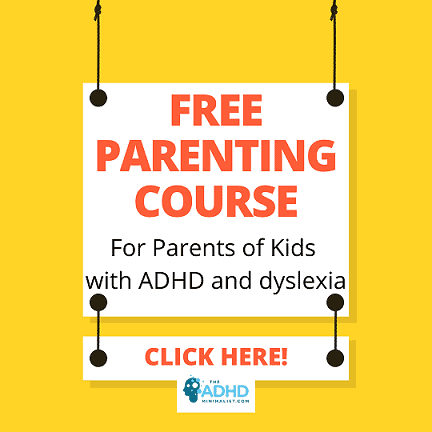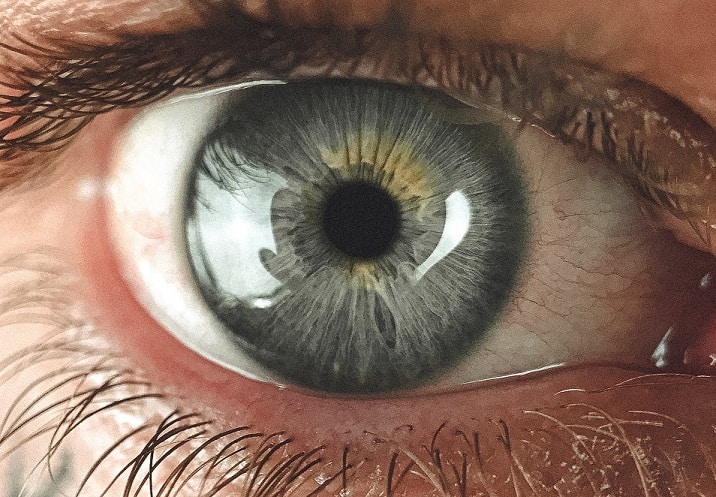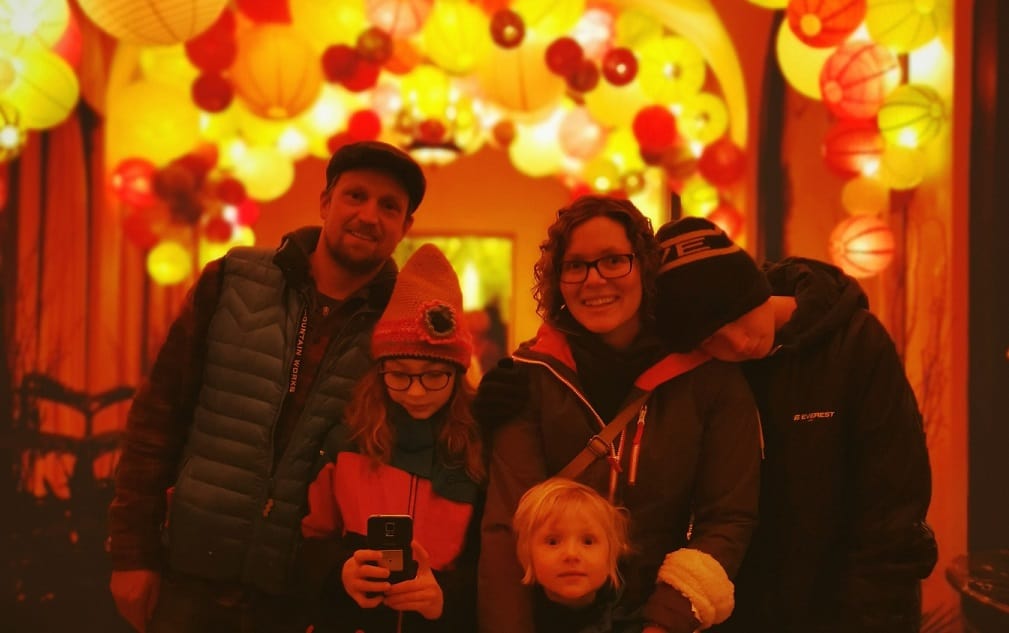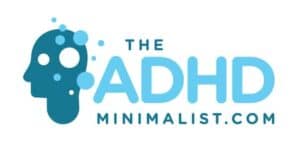I noticed that I was avoiding eye contact with someone at work, just the other day. On my way home I asked myself why.
The answer was, I was in a situation that made me uncomfortable. This automatically translated into avoiding eye contact as a way of hiding!
I supposed the childish idea of, ‘’If I shut my eyes you can’t see me’’ translated into; If I don’t make eye contact, the other person won’t notice that I am uncomfortable! Unfortunately, the opposite is probably true.
I am the mother of three kids two of which have ADHD and dyslexia diagnoses. My ADHD kids struggle with eye contact, and I never considered why until recently.
Why Should Kids with ADHD NOT be Required to Make Eye Contact?
Because It’s difficult for those with ADHD/ADD to understand social cues and read social situations correctly, looking people in the eyes may cause a sensory overload. Kids with ADHD/ADD are often very observant. When they notice all the minute details around a person’s eyes, as well as trying to decipher what they see in the eyes, ADHD kids are often overwhelmed!
Thus being forced to look, those they are uncomfortable with, in the eyes may make these children extremely anxious!
It can be difficult for ADHD kids to make eye contact when they want to communicate something deeper like, I love you!
ADHD kids may not be able to make eye contact with those outside the immediate family!
For Example, If kids feel that their teacher dislikes them, they may avert their eyes in an effort to hide from the teacher.
Every ADHD child is different. If your child has trouble with eye contact you may need to teach them to fake it by looking at someone’s eyebrows or glasses instead of making actual eye contact.
You would be surprised how many people don’t notice the difference!
Why Faking Eye Contact may be Necessary for Those with ADHD
The society we live in today expects eye contact! Avoiding eye contact can cause teachers, bosses, and friends to think you’re lying! Eye contact is a major component of non-verbal communication!
Ruth Davidhizar, RN, DNS, CS wrote in her paper ‘’The Interpersonal Communication: A Review of Eye Contact’’ which was published by Cambridge University, that eye contact can be both positive and negative. (You will find links to sources at the end)
‘’Eye contact can be used to ascertain need, to communicate attentiveness and concern, to indicate interpersonal interest, to offer support’’
‘’On the other hand, eye contact can be used negatively. Eye contact can be viewed as aggressive, intimidating, or anxiety producing.’’
‘’Not only is the presence of eye contact significant, but lack of eye contact also may be used to evaluate another’s responsiveness in an interaction.
Lack of eye contact may be interpreted as lack of interest or concern, lack of agreement, or preoccupation on some other matter’’ – Ruth Davidhizar, RN, DND, CS

Completely avoiding eye contact is not socially acceptable in today’s world!
When you avoid eye contact people assume:
- You’re not listening to them
- You’re lying
- You don’t care about them
- You’re not being supportive
- You’re anxious
- Your not interested/not attracted to them
- You dislike them
- You don’t agree with them and are afraid to tell them
- You are afraid of them
- You are completely preoccupied
- You are worried
- They make you uncomfortable
- You have something to hide
- You are not completely honorable or credible
It’s even been observed that when public speaking, speakers who make more eye contact with their audience are thought to be more credible than those who make little eye contact.
In other words, there are multiple reasons why you should make eye contact!
It may be necessary to fake eye contact when ADHD individuals find themselves in situations where their lack of eye contact may cause them to be misunderstood.
In some situations lack of eye contact can even cause individuals harm.
- If you avoid eye contact when talking to your teacher he may think you’re lying!
- If you avoid eye contact with a police officer, they may think you are hiding something and feel obligated to take you to the police station.
Trying to fake eye contact by focusing on details around a person’s eyes may not be a bad idea in the above examples. Often in casual conversation, people don’t notice the difference.
When You Should Have your Child Fake Eye Contact
If you have an ADHD child who has difficulties reading social cues, you may need to give him/her a list of situations where it’s better to fake eye contact than to completely avoid it.
Every ADHD child is unique and some may find normal social interactions very frustrating or almost impossible while other ADHD kids may thrive on social interactions and love being the center of attention or the class clown!
YOU (The parent or guardian) know your child best and YOU know what kinds of social interactions make your child freeze.
YOU know how your child reacts to being corrected by a teacher, or when lack of eye contact could get them accused of lying.
Some situations where faking eye contact can be a good idea are as follows:
- When talking to a teacher who doesn’t understand ADHD kids
- When talking to a police officer
- When interacting with peers who the child finds intimidating
- When meeting new peers
- When meeting new adults
- When standing up to a bully
- When on a job interview
- When giving an oral presentation at school
- When public speaking

ADHD and Eye Contact at Home
I find that eye contact is important at home. When I ask my children to do things like take out the trash or empty the dishwasher they inevitably say they did not hear me if I forget to make eye contact!
I believe that you can take eye contact to a deeper level! It can be used for so much more than just communicating basic everyday needs!
I use deep eye contact to communicate to my children that I love them, that I am proud of them, and that there is nothing they can do to make me stop loving them!
When children feel safe at home and have a loving connection to their parents then it’s ok to work on scary social skills like making eye contact in the home.
I wrote a whole post on the importance of eye contact at home, so I will not go into details here.
I answer the question why ADHD kids should make eye contact at home in this post Why You Should Insist That ADHD Kids Make Eye Contact.

Can a Child Grow out of Avoiding Eye Contact?
My son is 13-years-old, and he makes much better eye contact now than he did four years ago! Despite his ADHD, he can casually look me in the eyes on a daily basis.
Sometimes when he is stressed or panicking he can be too intense with his eye contact! This only happens if he is worked up over something, but he can try to maintain eye contact with me for long periods of time which I think is rather uncomfortable!
He is usually extremely intense during these episodes! His eyes are wide open, and he stares into my eyes and talks incessantly!
I almost immediately feel the need to look away!
Behaviors such as these are just as socially unacceptable as completely avoiding eye contact! This level of intenseness and prolonged eye contact could freak out the oldest of friends!
Fortunately, my son mostly displays these behaviors at home where he feels it’s safe to show how he feels, and it doesn’t happen often.
This is a good example of how ADHD can change over a lifetime. He went from avoiding eye contact in childhood to being too intense in adolescence!
He can still avoid eye contact, but it only happens slightly more than what you would expect of an average teenager. Looking down when talking to a teacher he is unsure around or when we are confronting him about something he did wrong is normal behavior.

How to Practice Faking Eye Contact With Your Child
If your ADHD child can’t handle making eye contact when it’s socially acceptable to do so, then it’s probably a good idea to teach your child to fake it!
- First, have him/her practice at home with you. When you can talk to your child and take little notice of his/her focus on your eyebrows, glasses frames, or eye makeup then it’s time for them to practice on an unsuspecting victim!
- Second, have him/her talk to grandma, or an older sibling, but don’t say that your child is practicing fake eye contact. If Grandma notices, take her advice into consideration. If his/her older sibling (or older neighbor kid) notices then you’re probably not fooling anyone! If they don’t say he/she is being weird then you’re probably on the right track!
- Third, It can be easier if you can find an older sibling or an older neighbor kid (whom your child looks up to), to work on eye contact with your child. This approach may go better than if you try to coach him/her yourself!
Just make sure that whoever you pick is someone that you can trust, someone who can understand that your child has ADHD (or other diagnoses such as autism), and someone who will build your child up.
Good Luck
If you need help with your ADHD child please read my other blog posts and learn from our mistakes!
What To Do If Your ADHD child Is A Pack Rat! How I helped my daughter who has ADD declutter, clean and organize her room. She keeps everything and needed creative ideas for getting rid of things!
Why Working as a Team, to Parent Your ADHD, Child is Crucial! How to parent as a team if your spouse is away on work, if you’re both at home or if you are a single parent!
How Minimalism can Reduce ADHD Symptoms Both my ADHD kids did better when we decluttered our home! Don’t confuse Family Minimalism with living in a white box or counting how many things you own!
How it feels to have ADHD in a Thirteen-Year-Old’s Own Words Did you ever wonder what was going on in your ADHD teenager’s brain?

(Source) https://www.tandfonline.com/doi/abs/10.1080/03634527409378052
(Source) https://www.cambridge.org/core/journals/infection-control-and-hospital-epidemiology/article/interpersonal-communication-a-review-of-eye-contact/0A5931C4FF6DD7A2C1F92EFF875CAEEE
(Source) https://www.buildingvoices.com.au/what-does-your-eye-contact-say-about-you/
